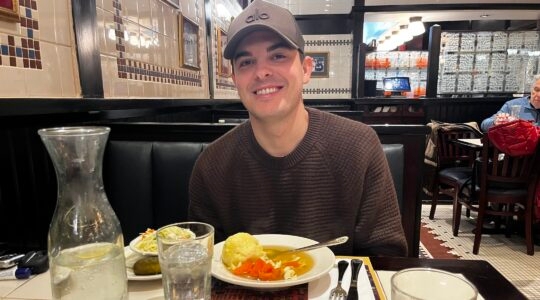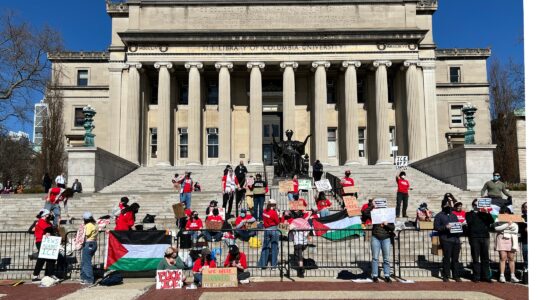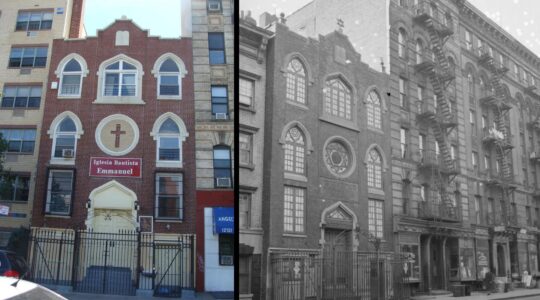In ordinary circumstances, the German weather might have seemed unremarkable, a sunless October Sunday afternoon in an open field, but there was nothing ordinary about this battlefield in 1944. Max Fuchs, an American private, remembered years later that he felt “elated,” and so did the 50 or so Jewish GIs who had just captured Aachen, the first German city to fall. They heard explosions. “We weren’t exactly on territory that was 100 percent safe,” Mr. Fuchs later told an interviewer, but the senior chaplain, a Roman Catholic priest, knew it was safe enough to thank God. He told Mr. Fuchs, 22, an assistant gunner, to bring together all the Jews in the division and say a prayer.
It was only a 10-minute service, but as an NBC radio broadcaster told his listeners, “The National Broadcasting Company, in cooperation with the American Jewish Committee, brings you now a special broadcast of historic significance, with the first Jewish religious service broadcast from Germany since the advent of Hitler. … We hear the sound of artillery guns because the front line is not far from where we are.”
Mr. Fuchs wasn’t a professional chazzan at the time, and it was hardly a formal service, but he grew up a Klauzenberger chasid, and studied in Brooklyn’s Yeshiva Torah Vodaath after leaving Rzeszow, Poland, 10 years prior. He knew what he was doing. He sang prayers that most any Jew could sing along to, “Yigdal” and “Ein Keloheinu,” with some Yizkor added on. Elsewhere in Germany, the death camps were still operating, but Mr. Fuchs’ strong voice, void of ostentation, might as well have been the Messiah’s shofar. It was the beginning of Hitler’s end. “God will revive the dead,” he sang, a message from Yigdal in a land of death.
Mr. Fuchs died in Manhattan last week, wheelchair-bound and 96. But a few weeks ago, recalled his daughter, Ester Fuchs, on the Shabbos of Memorial Day, at the Upper West Side’s Congregation Ramat Orah, the old cantor led El Maleh Rachamin, his final Yizkor for fallen soldiers.
He didn’t talk much about all he saw at Normandy and at the Battle of the Bulge, and coming home he had nightmares in his sleep and shrapnel in his chest. But he came to understand, his daughter told The Jewish Week, that it was “important that people know that Jewish boys had fought in the American army and were part of stopping Hitler.”
As a teenager on the Lower East Side, Max Fuchs saved his nickels by
walking across the Williamsburg Bridge to his Brooklyn yeshiva, then using those nickels to go to the musicals at the Loew’s Delancey. He learned English by going to the movies, he told Ester. He aspired to the Yiddish stage, studying at the American Theater Wing and with the well-known Cantor Simon Raisen, “who also composed for my father,” said Ester.
Mr. Fuchs served as a chazan for nearly 40 years, first at the Eldridge Street Synagogue and later at the Bayside Jewish Center. Well into his 90s, he worked weekdays as a diamond cutter on 47th Street, his delicate yet determined cutting the subject of a “Talk of the Town” article in The New Yorker.
He told The New Yorker about his diamond cutting, “You can take a … broken diamond, and you bring it back into shape. … It’s a masterpiece — like Picasso.”
He did that, as well, for the remnants of Yiddishkeit, bringing it back to life, in an open field in Germany.
Mr. Fuchs is survived by his wife Naomi, daughters Ester and Hana, sons Yehudah, Aaron and Dov, a sister, Regina Wengrow, and five grandchildren.
The New York Jewish Week brings you the stories behind the headlines, keeping you connected to Jewish life in New York. Help sustain the reporting you trust by donating today.




